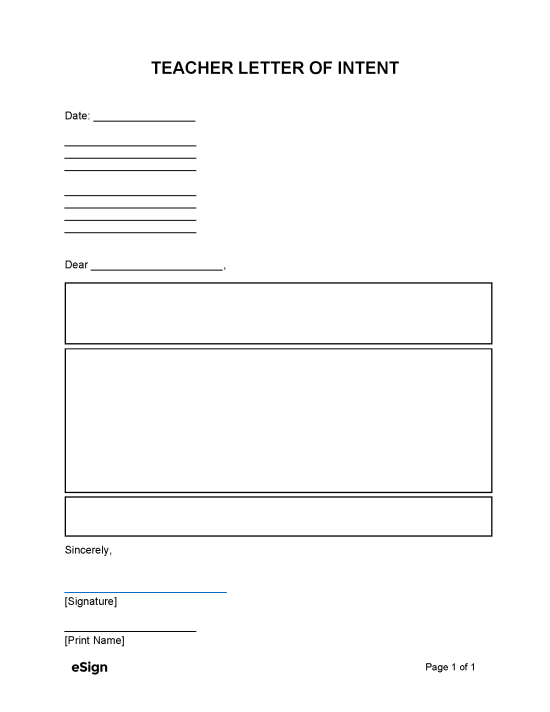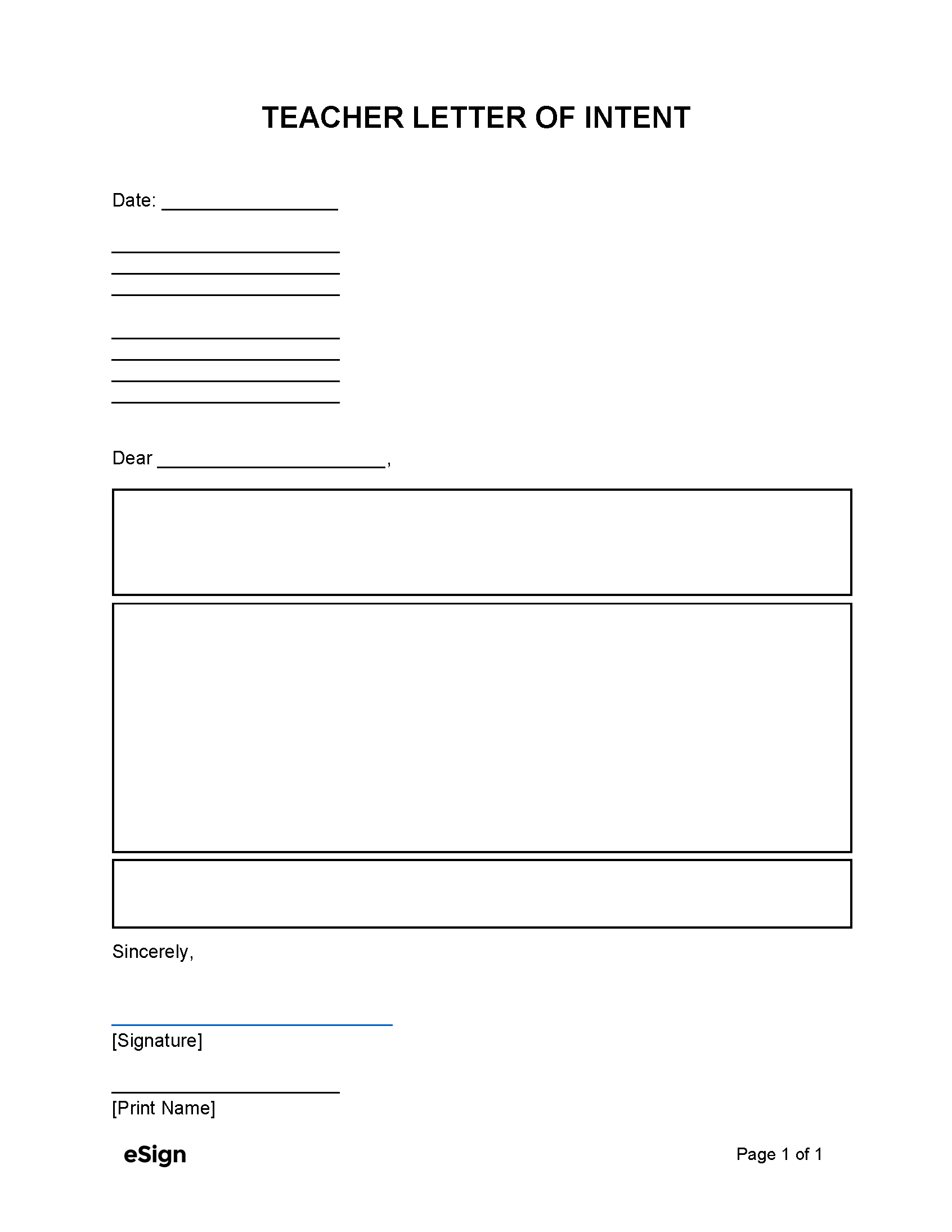How to Write
Most letters of intent for an education program will contain the following:
1. Introduction
The candidate should introduce themselves to the selection committee, describe what program they are applying for, and what semester they wish to attend.
2. Background
Completed studies, work experience, volunteering, and any other accomplishments related to their educational background should be included.
3. Goals and Intentions
Career and educational aspirations are an important part of the letter. The individual may wish to explain how the program will help them on their journey to becoming a teacher, what they hope to get out of it, and what they could give back.
4. Conclusion
The candidate should end with a summary of the points made in the letter and reinforce why they would be a good candidate for their selected program.
5. Signoff
It’s good practice to thank the selection committee for their time and consideration. Once completed, the letter should be signed.
Sample
Download: PDF, Word (.docx), OpenDocument
TEACHER LETTER OF INTENT
[DATE]
[SENDER NAME]
[SENDER STREET ADDRESS]
[SENDER CITY, STATE, ZIP]
[RECIPIENT NAME], [RECIPIENT TITLE]
[PROGRAM NAME]
[SCHOOL NAME]
[SCHOOL STREET ADDRESS]
[SCHOOL CITY, STATE, ZIP]
Dear [ADMISSIONS COMMITTEE],
My name is [APPLICANT NAME], and I am writing this letter to accompany my application to [SCHOOLS NAME]’s Bachelor of Education program for the [SEMESTER SEASON] semester. I recently toured your institution and was impressed by the facilities, faculty, and students I encountered. Pursuing my dream of becoming a teacher at your university would be a true honor.
I have been interested in a teaching career since my early childhood education. I always had a passion for learning and have been truly inspired by the teachers in my life that went above and beyond to stimulate and challenge their students. Seeing how these individuals impacted my life and the students around me has motivated me to want to do the same for future generations of students.
I have gained practical experience teaching by tutoring and volunteering at local schools. These opportunities have reaffirmed my desire to pursue a teaching career. I love connecting with students and creating a warm environment to encourage learning and growth. I am particularly interested in teaching [INTERESTED GRADES], as I connect with that age group and the subjects they’re tackling.
I believe your program would set me on the path to achieving my dreams and career aspirations. I am excited to challenge myself intellectually and professionally by learning under an experienced and dedicated faculty.
Thank you for taking the time to consider my application. I look forward to the opportunity to prove myself in your program and contribute meaningfully to the field of education.
Sincerely,
[APPLICANT NAME]
Signature: __________________
Other Tips
1. Brevity – The admissions committee will likely receive many letters and applications. The writer should attempt to keep the letter to a single page to show respect for the reader’s time and to hold their attention.
2. Proofreading – As an aspiring educator, the letter must be free of spelling and grammar mistakes. Having a trusted friend or colleague look over the letter with fresh eyes may be beneficial to ensure it is as well-written as possible.
3. Personalize – To add a more personal touch, it may be beneficial to find out the name of the individual in charge of admissions and address the letter to them directly. This will also signal to that person that the candidate did their research and is serious about their application.

